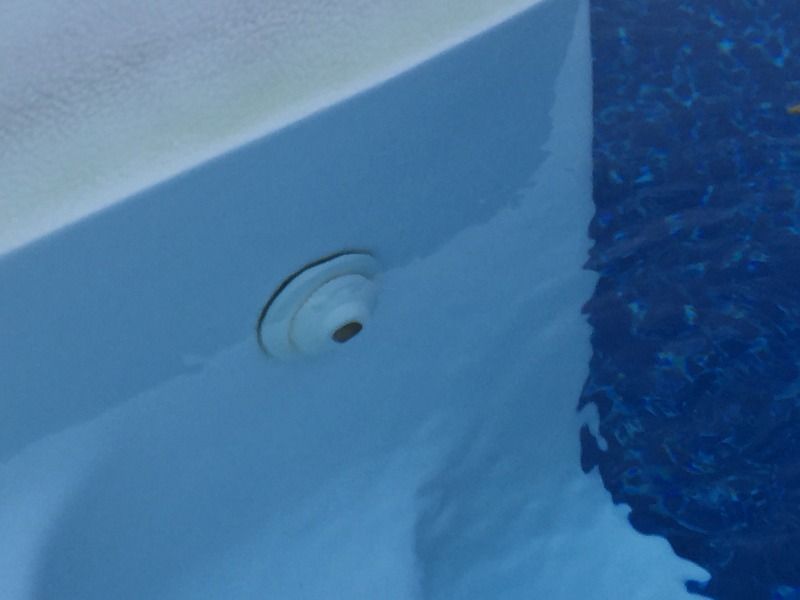- Jul 31, 2013
- 114
- Surface
- Vinyl
- Chlorine
- Salt Water Generator
- SWG Type
- Hayward Aqua Rite (T-15)
Ashamed and depressed is the way I feel at the moment. I mistakenly used copper algaecide with something telling me "metals are bad" in the back of my mind; but I didn't realize it until now. Now I come begging for advice on how to address it with a humble heart. If I get thru this, I will be a prophet for what this site teaches and not do anything without researching it.
So, I used algaecide about 7 weeks ago and I'm just starting to see some "staining" of what I believe it a byproduct of using copper. There is a green stain above the water line on my white (I believe fiberglass) steps. That is the only trace in the pool as there are no other noticeable staining I could find. I didn't think anything of it as I have clean, clear water; only when my wife mentioned about some green stains in bathing suits did I realize that I could have an issue. It was also mentioned that my daughters had a slight green tint to their hair; so I'm committed to making this work.
I've read about different sequesters and even processes like CuLator; I really am not sure where to go or start. But I do promise to take the advice given and have it documented here so others hopefully do not make my same mistakes.
Thanks in advance to any help that is provided, I am deeply appreciative.
Water Balance:
FC - 6.5
CC - 0
pH - 7.6
TA - 50
CYA - (estimated 50 from last time)
So, I used algaecide about 7 weeks ago and I'm just starting to see some "staining" of what I believe it a byproduct of using copper. There is a green stain above the water line on my white (I believe fiberglass) steps. That is the only trace in the pool as there are no other noticeable staining I could find. I didn't think anything of it as I have clean, clear water; only when my wife mentioned about some green stains in bathing suits did I realize that I could have an issue. It was also mentioned that my daughters had a slight green tint to their hair; so I'm committed to making this work.
I've read about different sequesters and even processes like CuLator; I really am not sure where to go or start. But I do promise to take the advice given and have it documented here so others hopefully do not make my same mistakes.
Thanks in advance to any help that is provided, I am deeply appreciative.
Water Balance:
FC - 6.5
CC - 0
pH - 7.6
TA - 50
CYA - (estimated 50 from last time)


